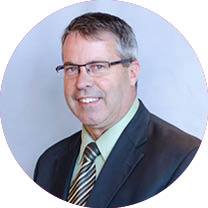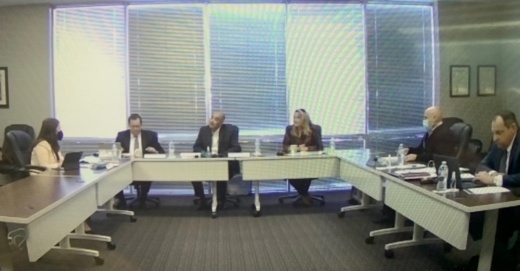A partnership between River North Transit (Via) and the Denton County Transportation Authority that began Sept. 7 features on-demand rideshare services in Highland Village and parts of Lewisville and Denton.
While the service does not go onto the UNT campus, ridership is highest in the immediate surrounding area, according to heat maps presented at the Oct. 28 DCTA board of directors meeting.
“There is quite a bit of demand around the UNT campus,” said Javier Trilla, DCTA assistant vice president of innovation and technology. “It’s putting a strain on the system.”
From Sept. 7-Oct. 18, more than 22,200 GoZone riders have used the service, with 19,238 reservations initiated in Denton. Lewisville accounted for another 3,000 rides, according to DCTA data. Patrons use a phone app or call a number to initiate a pickup and drop-off in the service area. The cost is $0.75 one way.
During the first six weeks of service, GoZone riders waited an average of 14 minutes for a ride, while the contract requires a 15-minute maximum. The average ride duration has been 13 minutes with an average distance of 4 miles, according to DCTA data.
Since the service started, Mondays and Fridays have been the busiest days, and Sundays have been the slowest.
According to DCTA officials, Via has added more vehicles to accommodate the volume and is looking at other solutions—moving vehicles elsewhere in the system toward Denton during peak usage times—to lower wait times and handle more passengers.
“It has been less than two months; I see it as a startup,” DCTA CEO Raymond Suarez said. “Give them time to improve their performance and work out all the issues. It takes time to do that. I think they are doing a pretty good job right now.”
GoZone will begin a second phase of its service in Castle Hills, with the DCTA budget amended Oct. 28 to serve that community beginning Jan. 19.
A study is underway by the board with a goal of reducing duplication with the region’s fixed-route bus system and GoZone. Suarez and DCTA board Chair Cesar Molina stressed decisions on the future of the fixed-route system should be data-driven. The fixed-route service costs $300,000-$400,000 monthly to operate and with 19 driver positions open, efficiency of the system is being reviewed for the Dec. 2 board meeting.
Earlier in the year, the DCTA board voted to fund six months of operations for bus Routes 3 and 7 in Denton while funding the remaining routes in Denton and Lewisville for three months during the initial months of GoZone service.
In a presentation to the board, Accenture Senior Manager Chris Newport showed how DCTA’s current fixed routes compare to where rides from the GoZone service initiated. Overwhelmingly, Routes 3 and 7 were the most used by residents.
Board members will be presented data for October and November ridership for each route, and DCTA staff will present recommendations for any service changes at the Dec. 2 meeting.
There, the board could extend, modify or eliminate existing service on all routes other than 3 and 7, which are budgeted until March.
Along with data, the board will look at the service through framework that includes transit-supported densities, equity and inclusion indicator, ridership productivity and reliability trends in aggregate and by route, and stability of service alternatives, according to DCTA documents.
City of Denton board representative Alison Maguire said she would not support large-scale cuts to fixed-route services and suggested the board wait for conclusive data over several months before making a decision.
Without an extension and budget amendment, all routes except 3 and 7 would cease after contractual notice is given, according to the DCTA.
“If there is compelling data that different routes should stay open, recommendations will be considered to extend [fixed-route service],” Molina said.





